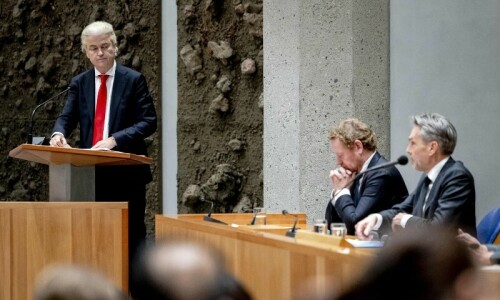Marinaleda, a small town in Spain’s Andalusia region, is more than just a “rural curiosity run by a bearded eccentric” and is administered along the lines of “a communist Utopia” with “collectivised lands”, offering the opportunity of working the fields to every inhabitant.
A recently published piece in The Guardian on the town says the economic conditions of the inhabitants are first-rate compared to the rest of Andalusia, where jobs are currently being lost at the rate of about 500 a day and the unemployment rate stands at 36 per cent.
The town, with a population of 2700, is run by Juan Manuel Sánchez Gordillo who was first elected its mayor in 1979. Dubbed the “Robin Hood of Spain”, Gordillo who was 30 at the time, has held the position ever since – re-elected every time, and with an overwhelming majority.
Gordillo has never been a member of the communist party “of the hammer and sickle” and in a 2011 interview, called himself a “communitarian" whose political ideas are drawn from those of Jesus Christ, Gandhi, Marx, Lenin and Che Guevara.
Cultivation in the town began following a decade of relentless strikes, appeals and occupations, when the regional government finally awarded 1,200-hectare El Humoso farm to it in 1991, the article says.
“The new Marinaleda co-operative selected crops that would need the greatest amount of human labour, to create as much work as possible. In addition to the ubiquitous olives and the oil-processing factory, they planted peppers of various kinds, artichokes, fava beans, green beans, broccoli: crops that could be processed, canned, and jarred, to justify the creation of a processing factory that provided a secondary industry back in the village, and thus more employment.”
Partaking in decisions over what crops to farm, and when, is encouraged, and “often forms the focus of the village's general assemblies”.
When the town co-operative makes profits, it does not distribute it and “any surplus is reinvested to create more jobs” and everyone in the co-operative earns the same salary, €47 a day for six and a half hours of work, which is more than double the Spanish minimum wage.
And while private enterprise is “still an accepted part of life” in Marinaleda, major chains looking to expand operations in this Spanish town are not likely to get very far.
"We just wouldn't allow it," Gordillo told Dan Hancox of The Guardian.
The town’s struggle into becoming a “utopia” began from a state of abject poverty in the late 1970s. At the time, the village was suffering over 60 per cent unemployment and comprised of a farming community which had no land. From that state, Marinaleda has come a long way over a period of three decades.











































Dear visitor, the comments section is undergoing an overhaul and will return soon.